In the logistics and transportation industry, efficiency is critical. Companies are always on the lookout for versatile solutions that can accommodate various shipping needs while optimizing cost and performance. One such solution that has gained traction in recent years is the 20-foot container trailer. This article delves into the myriad advantages of 20-foot container trailers, their specifications, applications, and why they are a preferred choice among manufacturers and logistics service providers.
What is a 20-Foot Container Trailer?
A 20-foot container trailer is a specially designed vehicle with a framework that allows for the transport of standard 20-foot intermodal containers. These trailers can hitch to a semi-truck or be used in combination with other vehicles for efficient transportation solutions. Their design is optimized for both stability and ease of loading and unloading, enabling seamless logistics operations.
Key Specifications of 20-Foot Container Trailers
| Specification | Detail |
|---|---|
| Length | 20 feet |
| Width | Typically around 8 feet |
| Height (Overall) | Varies, approximately 4.5 to 5 feet depending on design |
| Weight Capacity | Generally up to 30,000 lbs (13,600 kg) |
| Material | High-strength steel or aluminum for durability |
| Axles | Usually equipped with 2 or more axles, depending on load |
Understanding these specifications is crucial for businesses looking to transport goods efficiently and effectively. Let’s explore how a 20-foot container trailer can provide significant benefits across various industries.
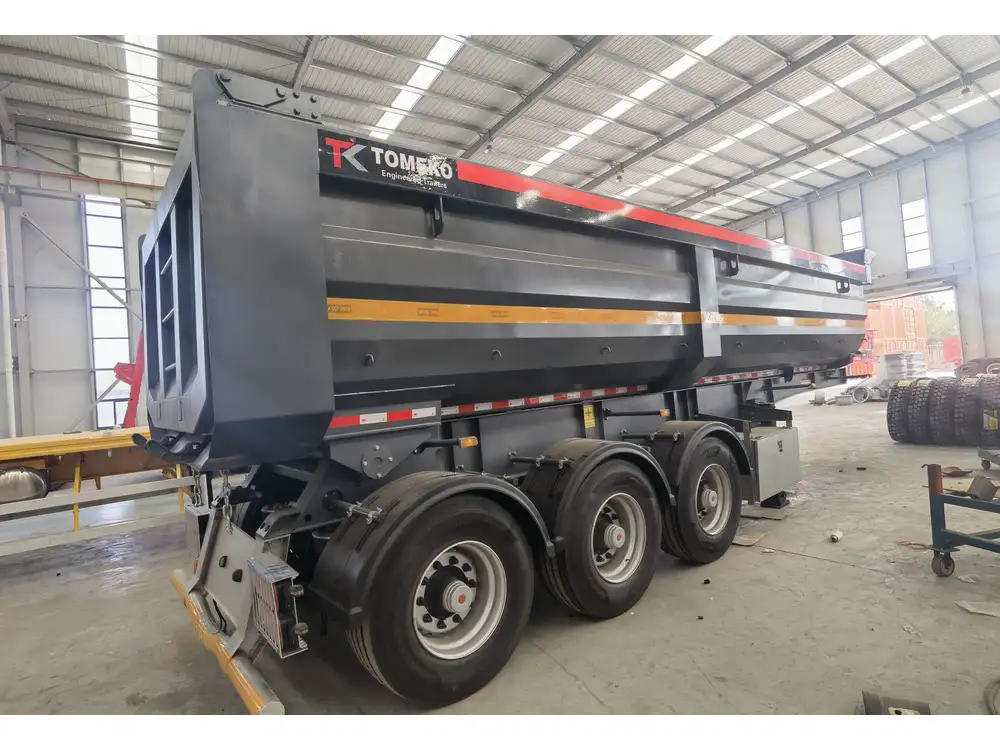
Versatile Applications of 20-Foot Container Trailers
1. Flexible Freight Solutions
One of the notable advantages of 20-foot container trailers is their flexibility. They cater to a wide range of freight types—including but not limited to:
- General Cargo: Items that don’t require special handling
- Bulk Goods: Such as grains or minerals
- Hazardous Materials: Properly modified and insulated trailers ensure safety
- Perishable Goods: Temperature-controlled versions can maintain appropriate climates
2. Intermodal Transportation
The rise of intermodal logistics has streamlined the process of transporting goods over long distances. 20-foot container trailers are specifically designed to facilitate this. They can easily switch between various modes of transport — such as ship, rail, and truck — ensuring that products reach their destinations rapidly and economically.
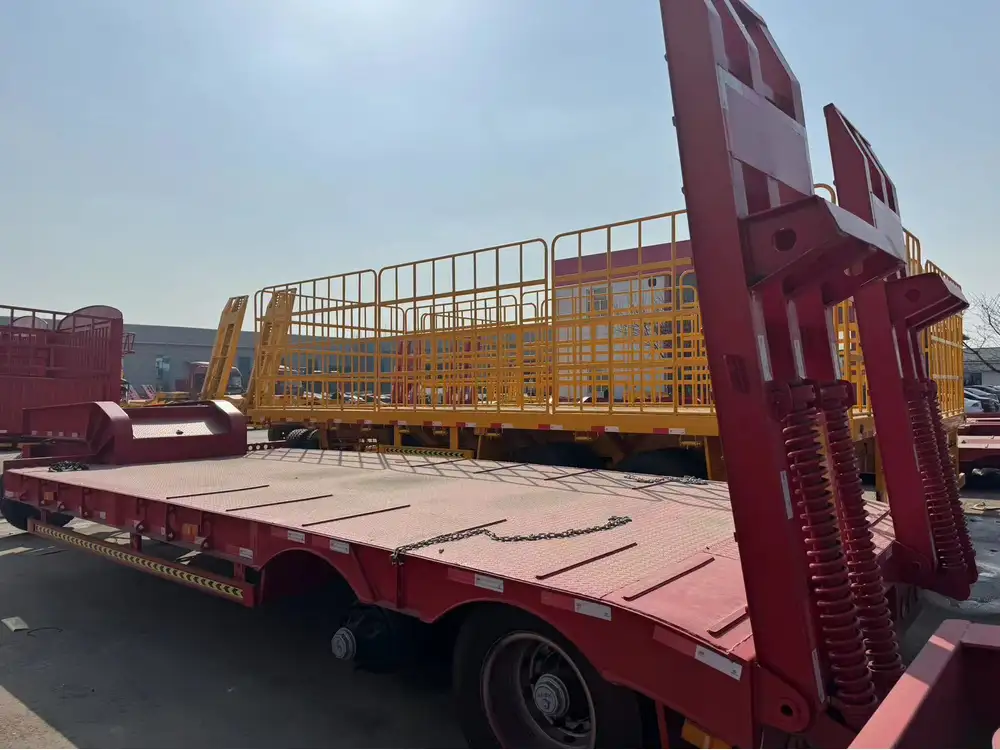
3. Cost Efficiency
Investing in a 20-foot container trailer can substantially reduce shipping costs due to its weight capacity and robustness. With a maximum weight of approximately 30,000 lbs, companies can load many goods without needing multiple vehicles. This consolidation of shipments lowers fuel costs, reduces labor costs for loading and unloading, and minimizes transportation delays.
4. Simplified Loading and Unloading Process
Compared to other transport solutions, 20-foot container trailers offer an efficient loading and unloading process. Their standardized dimensions mean that cranes and forklifts can easily handle them, regardless of the cargo type. This ease of operation not only saves time but also reduces the potential for workplace accidents during the loading process.
Why Choose 20-Foot Container Trailers?
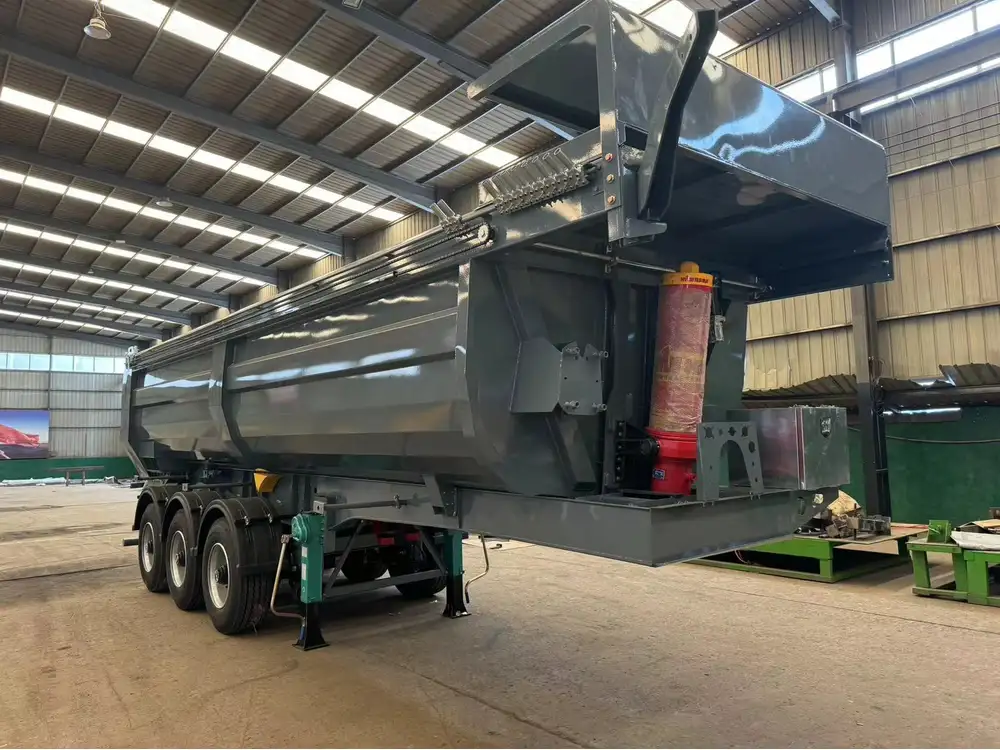
1. Durability and Longevity
Container trailers are built to withstand harsh environmental conditions. Made from high-strength materials, they resist corrosion and damage from impact. This durability ensures that the investments made in trailers will pay off over time, as maintenance and replacement costs are minimized.
2. Enhanced Security
Security is paramount in the transportation of goods. 20-foot container trailers typically come equipped with robust locking mechanisms, making them significantly less vulnerable to tampering or theft. For businesses transporting high-value goods, this added layer of security is indispensable.
3. Compliance with International Standards
For companies engaged in international freight, compliance with international shipping regulations is a priority. 20-foot container trailers meet standards set by organizations like the International Organization for Standardization (ISO), making them suitable for global shipping.
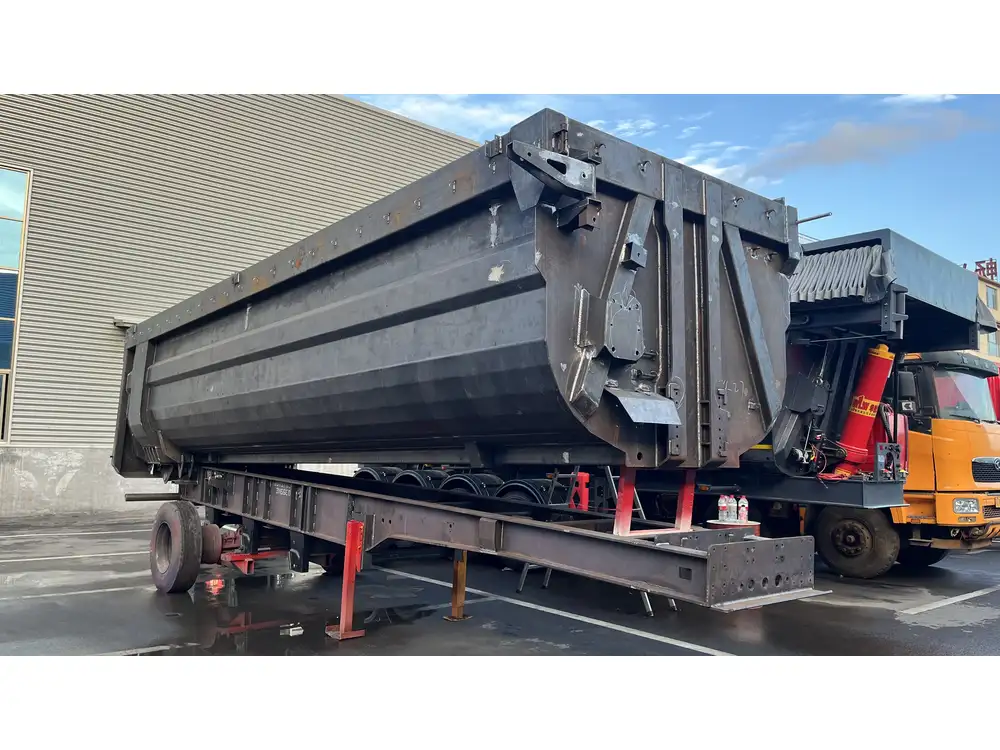
4. Eco-Friendly Options
Modern manufacturers are increasingly recognizing the need for sustainability. Many 20-foot container trailers are now designed with eco-friendly materials and technologies that reduce their carbon footprint. This not only appeals to environmentally conscious consumers but also aligns with industry regulations focused on sustainability.
Comparison with Other Types of Trailers
When evaluating the suitability of a 20-foot container trailer for particular applications, it’s essential to compare it with other types of transport trailers:
| Trailer Type | Capacity | Usage Focus | Key Advantages | Disadvantages |
|---|---|---|---|---|
| 20-Foot Container Trailer | Up to 30,000 lbs | General cargo and intermodal | Versatility, durability | Limited to standard container sizes |
| Flatbed Trailer | Up to 48,000 lbs | Oversized or heavy goods | Easy loading/unloading | Vulnerable to weather |
| Reefer Trailer | Up to 45,000 lbs | Temperature-sensitive cargo | Temperature control | Higher operational costs |
| Drop Deck Trailer | Up to 60,000 lbs | Heavy machinery and equipment | Stable loading | Can be difficult to load/unload |
By examining this comparison, it’s clear that the 20-foot container trailer offers a well-rounded solution for diverse transportation needs, particularly for businesses prioritizing cost-effectiveness and operational efficiency.
Addressing Common Concerns
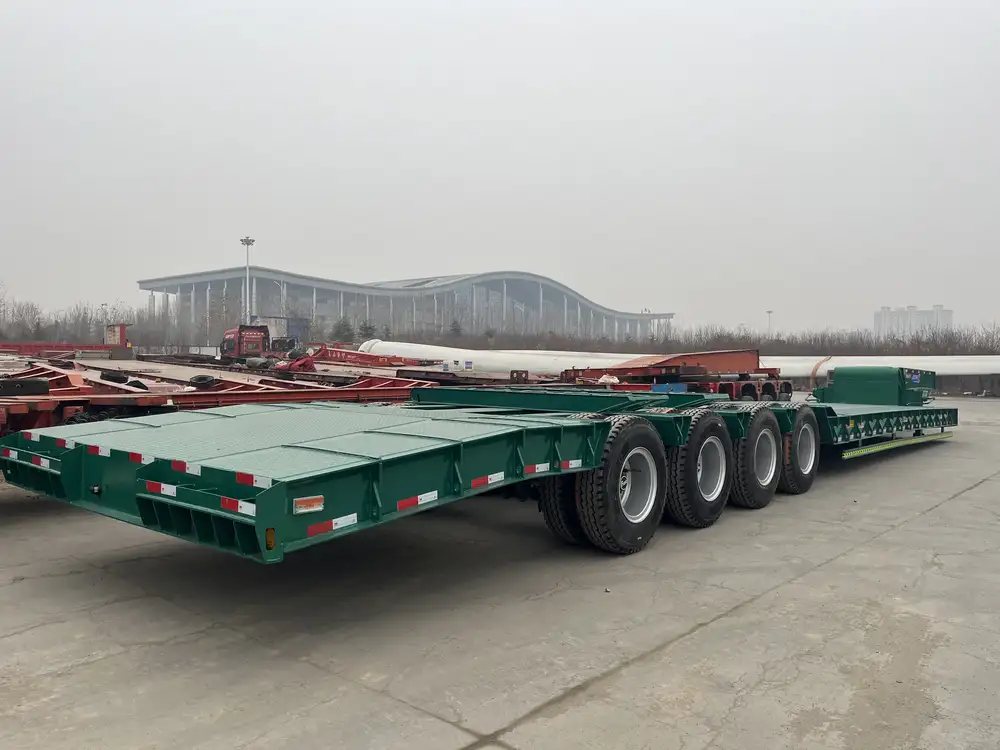
1. What Types of Goods Are Suitable for a 20-Foot Container Trailer?
While primarily designed for general cargo, 20-foot container trailers can accommodate various goods, including bulk shipments, hazardous materials, and refrigerated items. However, it’s vital to understand specific regulations regarding the storage and transport of specialized items.
2. How Do I Choose the Right Trailer for My Needs?
Selecting the right trailer requires careful consideration of several factors, including:
- Cargo Type: Understand the specifics of what you are transporting, such as weight and special handling requirements.
- Trip Distance: Consider how far the trailer will be traveling. Longer distances may necessitate more robust options.
- Loading and Unloading Conditions: Assess whether the operation will take place in urban areas or remote locations, as this can impact your choice.
3. What are the Maintenance Requirements for 20-Foot Container Trailers?
Routine maintenance is critical to ensuring the longevity and reliability of your trailer. Key areas to focus on include:
- Tire Condition: Regularly inspect tire pressure and tread depth.
- Brake Systems: Ensure brakes are functioning correctly and perform regular checks.
- Frame Inspection: Routinely examine the trailer frame for signs of wear and tear or corrosion.
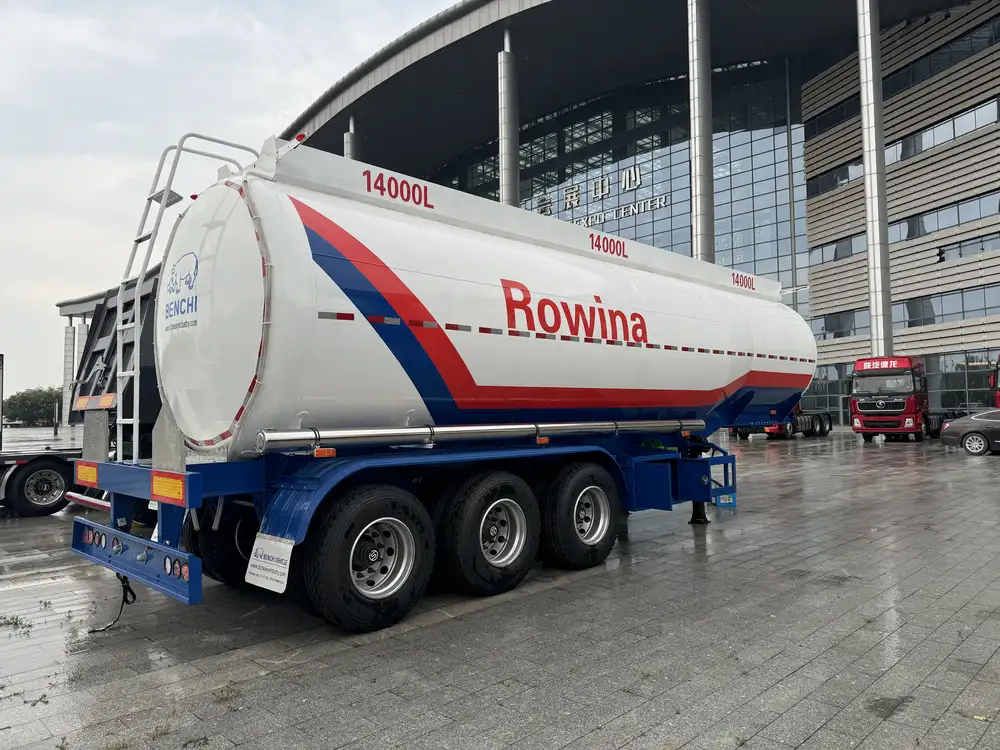
Conclusion
The versatility, durability, and cost-effectiveness of 20-foot container trailers make them an indispensable asset in the logistics and transportation industries. Their ability to cater to a diverse range of goods, combined with their intermodal transport capabilities, positions them as a preferred choice for manufacturers and logistics providers alike.
By selecting a 20-foot container trailer, businesses can streamline their transportation processes, enhance the security of their shipments, and ultimately ensure timely delivery to customers. When considering upgrades or new purchases in your transport fleet, keep the advantages of 20-foot container trailers in mind—they may be the optimal solution you’ve been seeking.



